Find Help
More Items From Ergsy search
-

Total Hip Replacement
Relevance: 100%
-

Total hip replacement
Relevance: 97%
-

Total hip replacement at Northumbria Healthcare
Relevance: 89%
-

What is a hip replacement?
Relevance: 72%
-

Hip replacement
Relevance: 70%
-

How long does a hip replacement surgery take?
Relevance: 65%
-

Do I need a Hip Replacement?
Relevance: 65%
-

Total Knee Replacement
Relevance: 63%
-

Total knee replacement
Relevance: 63%
-

Can both hips be replaced at the same time?
Relevance: 61%
-

How much does hip replacement surgery cost in the UK?
Relevance: 59%
-

What is minimally invasive hip replacement surgery?
Relevance: 57%
-

What is the recovery time for a hip replacement?
Relevance: 57%
-
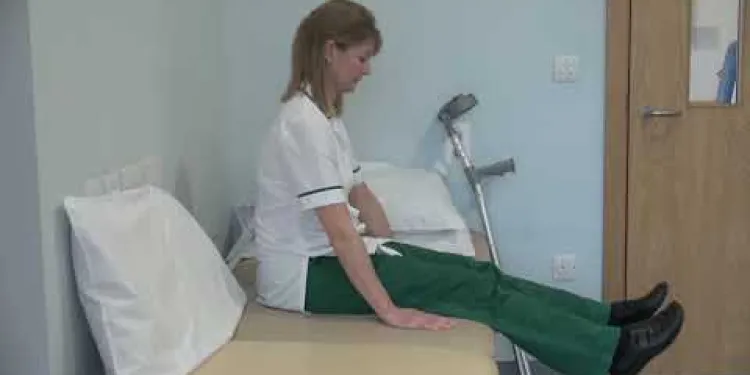
Hip replacement - getting into bed
Relevance: 57%
-

What are the risks associated with hip replacement surgery?
Relevance: 56%
-

Will I need physical therapy after a hip replacement?
Relevance: 55%
-

How do I prepare for hip replacement surgery?
Relevance: 53%
-

What type of anaesthesia is used during hip replacement surgery?
Relevance: 52%
-

How long does it take to recover from a hip replacement operation?
Relevance: 50%
-
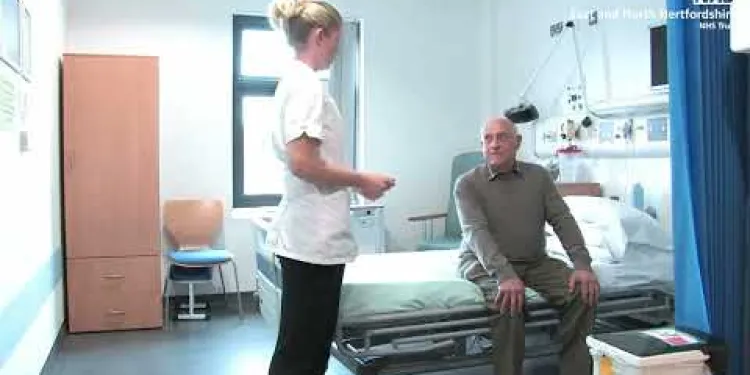
A journey to hip surgery
Relevance: 49%
-
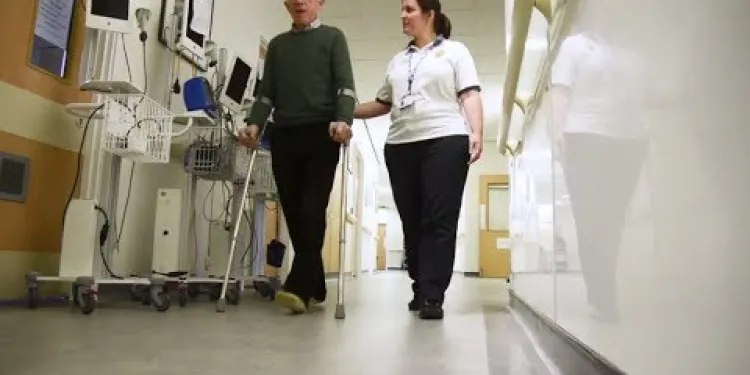
Having a hip replacement - Part Two: Recovery
Relevance: 48%
-

Osteoarthritis of the Hip
Relevance: 46%
-
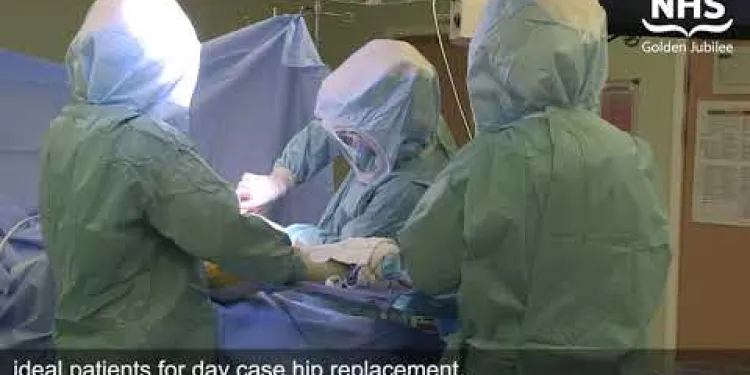
Same day discharge for NHS Golden Jubilee’s hip replacement patients
Relevance: 46%
-

Osteoarthritis of the Hip
Relevance: 44%
-

Your anaesthetic choices for your planned hip or knee replacement surgery at the RUH.
Relevance: 44%
-
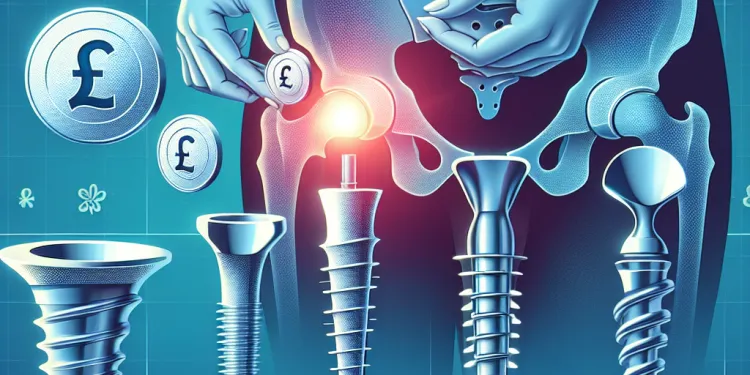
Are there different types of hip implants?
Relevance: 43%
-

How long do hip replacement implants last?
Relevance: 42%
-
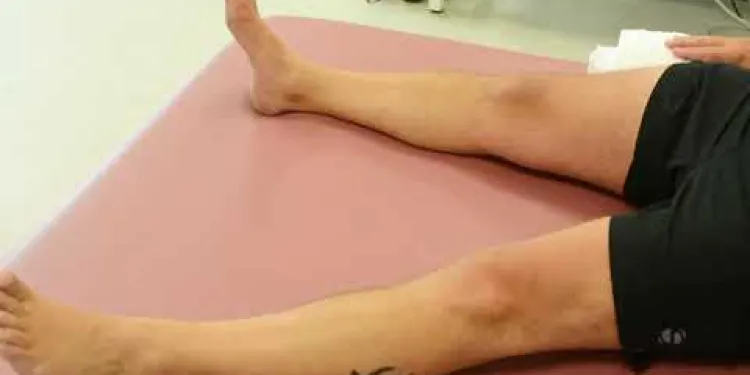
Joint School - Hip Exercises
Relevance: 39%
-

Will I be able to return to normal activities after hip replacement?
Relevance: 39%
-
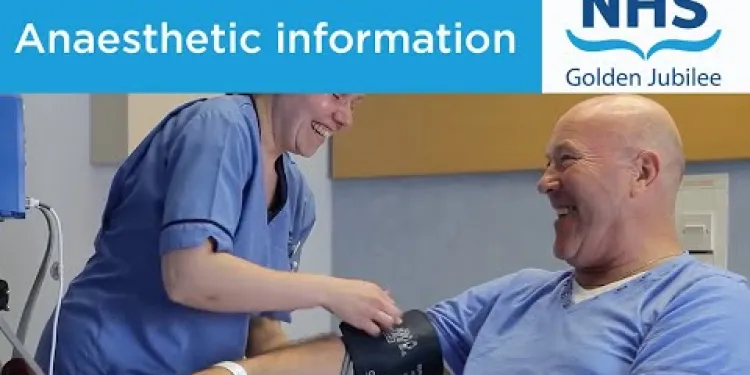
Knee replacement
Relevance: 36%
-
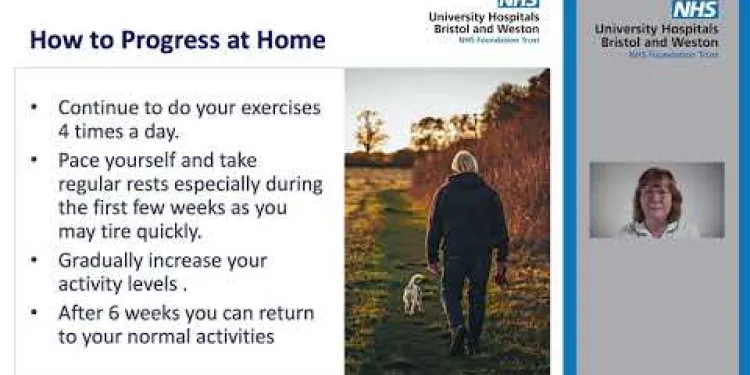
Enhanced Recovery - Hip
Relevance: 33%
-
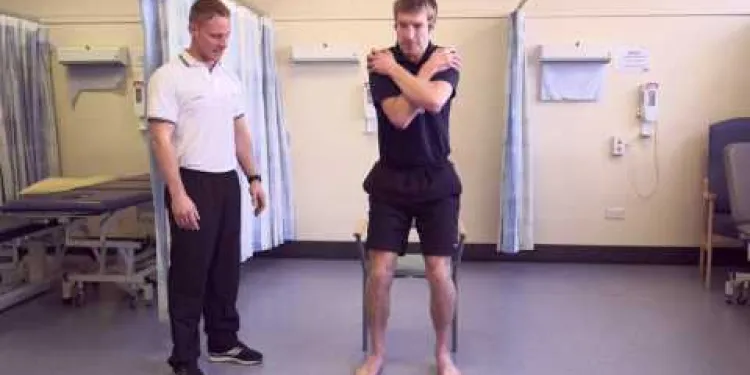
Exercises to help your lateral hip pain
Relevance: 33%
-

What can I expect during the first few weeks after hip replacement surgery?
Relevance: 32%
-
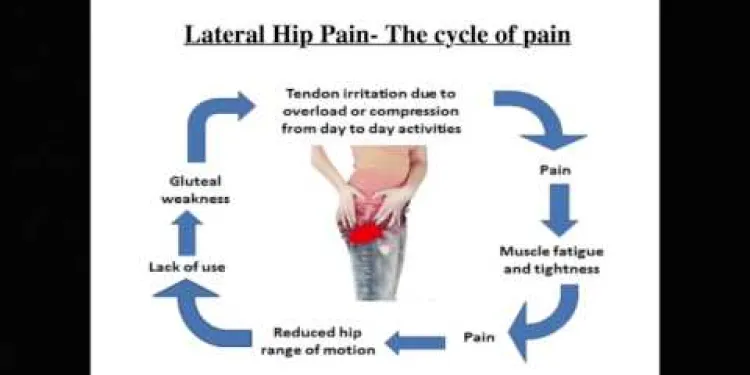
Advice - How to manage your lateral hip pain
Relevance: 32%
-

NHS Pension - Total Rewards Statement Explained
Relevance: 32%
-

Who is a candidate for a hip replacement?
Relevance: 31%
-

Would a wealth tax replace other taxes in the UK?
Relevance: 27%
-

Does the energy price cap guarantee my total bill?
Relevance: 27%
-

How much is being refunded in total by the UK water companies?
Relevance: 27%
-

Is hormone replacement therapy safe for menopause masking?
Relevance: 22%
Total Hip Replacement at Northumbria Healthcare
Introduction to Total Hip Replacement
Total hip replacement is a surgical procedure in which a damaged hip joint is replaced with an artificial one (prosthesis). This procedure is usually recommended for patients experiencing severe pain and mobility issues due to arthritis, hip fractures, or other hip-related conditions. At Northumbria Healthcare in the United Kingdom, patients will receive exceptional care facilitated by a team of experienced orthopedic surgeons and medical professionals.Why Choose Northumbria Healthcare?
Northumbria Healthcare NHS Foundation Trust is renowned for its high-quality medical services and patient care. Choosing Northumbria Healthcare for your total hip replacement comes with several advantages:- Expertise: The trust employs highly skilled orthopedic surgeons who specialize in hip replacement surgeries. They are proficient in both traditional and minimally invasive techniques, ensuring optimal outcomes for patients.
- State-of-the-Art Facilities: Modern operating theatres and advanced diagnostic tools ensure each procedure is performed with precision and efficiency.
- Personalized Care: Patients receive comprehensive pre-operative assessments and tailored postoperative rehabilitation plans, ensuring the best possible recovery.
- Patient Support: From the initial consultation to postoperative care, Northumbria Healthcare provides extensive support services, including pain management, physiotherapy, and follow-up appointments.
The Surgical Procedure
The total hip replacement procedure at Northumbria Healthcare involves removing the damaged hip joint and replacing it with an artificial one made of metal, ceramic, or plastic components. This surgery typically includes:- Preoperative Assessment: Comprehensive evaluations to determine the patient’s suitability for surgery and to plan the procedure.
- Anesthesia: The patient will receive anesthesia to ensure they are comfortable and pain-free during the surgery.
- Surgery: The surgeon will make an incision to access the hip joint, remove the damaged portions, and implant the prosthesis.
- Postoperative Care: After surgery, patients are closely monitored and supported through their recovery with a personalized rehabilitation plan.
Recovery and Rehabilitation
Recovery from a total hip replacement varies from patient to patient. However, Northumbria Healthcare ensures patients receive top-notch physiotherapy and occupational therapy to aid their rehabilitation. The typical recovery process includes:- Early Mobilization: Patients are encouraged to start moving their new joint shortly after surgery to prevent stiffness and promote healing.
- Physical Therapy: Tailored exercises to strengthen the hip muscles and improve joint function.
- Follow-up Appointments: Regular check-ups to monitor recovery progress and address any complications early.
Conclusion
Total hip replacement surgery can greatly enhance quality of life for those suffering from debilitating hip conditions. Northumbria Healthcare provides top-tier care and post-surgical support, ensuring patients achieve the best outcomes possible. If you or someone you know is considering a total hip replacement, Northumbria Healthcare offers an exemplary choice in the United Kingdom.Total Hip Replacement at Northumbria Healthcare
Introduction to Total Hip Replacement
Total hip replacement is an operation where a bad hip joint is swapped with a new, artificial one. Doctors suggest this for people with really bad pain or trouble moving, often because of arthritis or hip injuries. At Northumbria Healthcare in the UK, skilled doctors and healthcare workers take great care of patients undergoing this procedure.Why Choose Northumbria Healthcare?
Northumbria Healthcare is famous for excellent care and medical services. Here’s why it's a good choice for hip replacement:- Expert Doctors: They have special doctors who are very good at hip operations. They use both regular and newer techniques to help you get better.
- Modern Facilities: They use up-to-date tools and equipment to make sure everything goes well in the surgery.
- Personal Care: You will get a full checkup before the surgery and a special plan to help you recover afterward.
- Patient Help: From your first meeting to recovery time, they help with things like managing pain, doing exercises, and follow-up visits.
The Surgical Procedure
The hip replacement surgery at Northumbria Healthcare means taking out the bad hip joint and putting in a new one made of metal, ceramic, or plastic. Here’s what happens:- Pre-Surgery Check: A full checkup to make sure you can have the surgery and to plan how it will be done.
- Anesthesia: You will be given medicine so you won't feel pain during the surgery.
- Surgery: The doctor makes a cut to reach the hip, takes out the damaged parts, and puts in the new joint.
- Aftercare: After surgery, you will be looked after and helped to get better with a recovery plan just for you.
Recovery and Rehabilitation
Getting better after hip replacement varies for everyone, but Northumbria Healthcare helps with therapy to aid recovery:- Start Moving: They will help you start moving your new hip soon after to prevent stiffness and aid healing.
- Exercises: Special exercises to make your hip muscles stronger and work well.
- Regular Check-Ups: Visits to check how you are doing and fix any issues early.
Conclusion
Total hip replacement can make life much better for people with painful hip problems. Northumbria Healthcare offers excellent care and support after surgery to help you recover well. If you or someone you know needs hip replacement surgery, Northumbria Healthcare is a great option in the UK.Frequently Asked Questions
What is a total hip replacement?
A total hip replacement is a surgical procedure where a damaged hip joint is replaced with an artificial one, typically to relieve pain and improve mobility.
Who is a candidate for total hip replacement?
Candidates for total hip replacement generally include individuals with severe hip pain or stiffness that limits daily activities and hasn’t improved with other treatments.
How long does a hip replacement surgery take?
The surgery usually takes about 1 to 2 hours, but preparation and recovery time mean you may be in the operating room for several hours.
What types of hip implants are used?
Common types of hip implants include metal-on-polyethylene, ceramic-on-polyethylene, and ceramic-on-ceramic. The choice depends on individual factors discussed with your surgeon.
What are the risks of hip replacement surgery?
Risks can include infection, blood clots, dislocation, implant wear and tear, nerve injury, and differences in leg length.
How long will I stay in the hospital?
Most patients stay in the hospital for 1 to 3 days after surgery, depending on their recovery progress and any complications that arise.
How soon can I walk after a hip replacement?
Most patients can start walking with the help of a physiotherapist on the day of surgery or the next day.
Will I need physiotherapy?
Yes, physiotherapy is an essential part of the recovery process to help regain strength, flexibility, and mobility.
When can I return to work?
The time to return to work varies depending on the nature of your job, but typically ranges from 6 to 12 weeks.
How long does it take to fully recover from hip replacement surgery?
Full recovery can take anywhere from 3 to 6 months, with some improvements continuing for up to a year.
Are there activities I should avoid after a hip replacement?
High-impact activities like running or jumping should be avoided. Most patients can return to low-impact activities like walking, swimming, and biking.
Can I drive after hip replacement surgery?
Most patients can resume driving around 6 to 8 weeks after surgery, once they are comfortable and no longer taking strong pain medications.
Will I need to take medications after my surgery?
You will likely need pain relief medication for a while after surgery, and possibly blood thinners to prevent blood clots.
How do I manage pain after surgery?
Pain can be managed through prescribed painkillers, ice packs, rest, and gradual increase in movement and physical therapy.
Will my new hip set off metal detectors at airports?
Yes, your hip implant might set off metal detectors. Inform security personnel about the implant when traveling.
What is a total hip replacement?
A total hip replacement is an operation.
It helps fix a sore hip.
Doctors take out the old hip joint.
Then, they put in a new, man-made joint.
Here are tips to help understand:
- Look at pictures of the hip joint. They can help!
- Ask a doctor to explain what happens in the surgery.
- Watch videos made for kids about hip surgery.
A total hip replacement is a type of surgery. In this surgery, doctors take out a hurt hip joint and put in a new one. This new hip is not made of bone. It is made from a special material. People have this surgery to help them feel less pain and to move better.
Who should get a new hip?
People who might need a hip replacement often have very bad hip pain or stiffness. This makes it hard to do things every day. Other treatments haven’t helped them feel better.
Here are some tips if you find reading hard:
- Try reading with a friend or family member.
- Break the text into smaller parts.
- Use a ruler or finger to keep your place on the page.
How long does hip replacement surgery take?
Hip replacement surgery is an operation to change a hip joint. It can help if the hip hurts a lot. The surgery usually takes 1 to 2 hours.
If you want help understanding this, you can:
- Ask someone to read it with you.
- Use pictures to understand better.
- Watch a simple video about it.
The surgery takes 1 to 2 hours. Getting ready and resting after can take more time. You might be in the surgery room for a few hours.
--- ### Tips to Help You Understand: - **Ask Questions**: If you don’t understand, ask your doctor or nurse. - **Use Pictures**: Look at drawings about the surgery. - **Someone with You**: Have a friend or family member with you to help listen.What kinds of hip implants are there?
There are different hip implants doctors use. A hip implant replaces a damaged hip joint. It can help people move better and with less pain.
Here are some common types:
- Metal Hip Implants: These are made of strong metal. They last a long time.
- Plastic Hip Implants: These have parts made of plastic. They are smooth and help the hip move easily.
- Ceramic Hip Implants: These are made of a tough material like pottery. They are very smooth.
If you or someone you know needs a hip implant, talk to your doctor. They can help you choose the right one.
Help to understand more:
- Use pictures and diagrams to see what hip implants look like.
- Ask your doctor questions about the surgery.
- You can ask to bring a friend or family member to talk with the doctor too.
There are different kinds of hip implants. Some are made of metal and plastic, some are made of ceramic and plastic, and some are all ceramic. Your doctor will help you choose the best one for you.
What could go wrong with hip replacement surgery?
There are some things that can go wrong. You might get an infection. Blood can clot. The new joint might come out of place. The new joint can wear out. Sometimes, nerves can get hurt. Your legs might end up different lengths.
If you want help with reading, you can ask a trusted person or use an app that reads out loud. Take breaks and read slowly.
How long will I stay in the hospital?
When you go to the hospital, you might want to know how long you will stay. The time can be different for each person. Some people stay for a day, while others may stay longer.
If you want to know more, you can:
- Ask your doctor or nurse. They can tell you what to expect.
- Use pictures or charts to help understand the information.
- Bring a friend or family member to help you ask questions.
Most people stay in the hospital for 1 to 3 days after their surgery. It depends on how well they are getting better and if there are any problems.
When can I start walking after getting a new hip?
You might have surgery to get a new hip. After that, you will want to know when you can start walking.
Most people can start walking the day after their surgery. You will need some help to get up and move around.
A special tool called a walker or crutches can help you walk. It is important to be careful and listen to your doctor or therapist.
They will guide you on how much you can walk each day.
Most people can start walking with help from a physiotherapist the same day or the day after their surgery.
Do I need help to make my body feel better?
Yes, physiotherapy is very important. It helps your body get stronger, move better, and feel more flexible after getting hurt.
To help understand better, you can use pictures or videos. You can also ask someone to explain it with easy words.
When can I go back to work?
The time it takes to go back to work depends on what kind of job you have. Most people go back to work in 6 to 12 weeks.
How long does it take to get better after hip surgery?
It can take 3 to 6 months to feel better. Some people keep getting better for a whole year.
What should I not do after getting a new hip?
If you have a new hip, there are things you should be careful with. Here are some tips:
- Don’t run or jump too much.
- Don’t sit on low chairs. Use a higher chair instead.
- Avoid crossing your legs.
If you need more help, you can use a walking stick or ask someone to help you.
You should not do hard activities like running or jumping because they can hurt you. You can do easier activities like walking, swimming, and biking. These are safer for you.
Can I drive after hip surgery?
Did you have a hip operation?
Ask your doctor when you can drive again.
Here are some ideas to help you:
- Wait until your doctor says it is safe.
- Practice in a safe, quiet area first.
- Use a car with an automatic gearbox if you can.
Most people can start driving again about 6 to 8 weeks after their surgery. This is when they feel okay and are not taking strong pain medicine anymore.
Will I need to take medicine after my surgery?
After your surgery, you might need to take medicine. Medicine can help you feel better and heal faster. It is important to listen to your doctor. They will tell you what medicine to take and how to take it. If you have questions, ask your doctor or nurse for help.
After your surgery, you will probably need medicine to help with pain. You might also need medicine to stop blood clots. Blood clots are clumps of blood that can block your blood flow.
How can I feel better after an operation?
Here are some ways to feel better if you are hurting after an operation:
- Take medicine: The doctor might give you medicine to help stop the pain. Try to take it when they say.
- Rest: Make sure to lie down and relax. Your body needs time to get better.
- Use a cool cloth: Put a cool, wet cloth on the sore part. This can help make it less painful.
- Listen to music: Calm music can help you feel nice and relaxed.
- Tell someone: If it hurts a lot, tell a grown-up or the nurse. They can help you feel better.
These things can make you feel better quicker. Always ask someone if you are unsure about what to do.
You can help pain go away by taking medicine from the doctor, using ice packs, resting, and slowly starting to move and exercise more.
Will my new hip make metal detectors beep at airports?
If you have a new hip, it might have metal in it. Sometimes, metal in your body can make airport metal detectors beep.
Here's what you can do to make airport security smooth:
- Tell security staff that you have a new hip.
- You can carry a note from your doctor if you want.
Don't worry, airport staff can help you. They might use a handheld detector or do a quick check. You're not in trouble; they just want to make sure everyone is safe.
Yes, your hip implant could make metal detectors beep. Tell the security workers about your hip implant when you travel.
Useful Links
This website offers general information and is not a substitute for professional advice.
Always seek guidance from qualified professionals.
If you have any medical concerns or need urgent help, contact a healthcare professional or emergency services immediately.
Some of this content was generated with AI assistance. We’ve done our best to keep it accurate, helpful, and human-friendly.
- Ergsy carfully checks the information in the videos we provide here.
- Videos shown by Youtube after a video has completed, have NOT been reviewed by ERGSY.
- To view, click the arrow in centre of video.
- Most of the videos you find here will have subtitles and/or closed captions available.
- You may need to turn these on, and choose your preferred language.
- Go to the video you'd like to watch.
- If closed captions (CC) are available, settings will be visible on the bottom right of the video player.
- To turn on Captions, click settings .
- To turn off Captions, click settings again.
More Items From Ergsy search
-

Total Hip Replacement
Relevance: 100%
-

Total hip replacement
Relevance: 97%
-

Total hip replacement at Northumbria Healthcare
Relevance: 89%
-

What is a hip replacement?
Relevance: 72%
-

Hip replacement
Relevance: 70%
-

How long does a hip replacement surgery take?
Relevance: 65%
-

Do I need a Hip Replacement?
Relevance: 65%
-

Total Knee Replacement
Relevance: 63%
-

Total knee replacement
Relevance: 63%
-

Can both hips be replaced at the same time?
Relevance: 61%
-

How much does hip replacement surgery cost in the UK?
Relevance: 59%
-

What is minimally invasive hip replacement surgery?
Relevance: 57%
-

What is the recovery time for a hip replacement?
Relevance: 57%
-

Hip replacement - getting into bed
Relevance: 57%
-

What are the risks associated with hip replacement surgery?
Relevance: 56%
-

Will I need physical therapy after a hip replacement?
Relevance: 55%
-

How do I prepare for hip replacement surgery?
Relevance: 53%
-

What type of anaesthesia is used during hip replacement surgery?
Relevance: 52%
-

How long does it take to recover from a hip replacement operation?
Relevance: 50%
-

A journey to hip surgery
Relevance: 49%
-

Having a hip replacement - Part Two: Recovery
Relevance: 48%
-

Osteoarthritis of the Hip
Relevance: 46%
-

Same day discharge for NHS Golden Jubilee’s hip replacement patients
Relevance: 46%
-

Osteoarthritis of the Hip
Relevance: 44%
-

Your anaesthetic choices for your planned hip or knee replacement surgery at the RUH.
Relevance: 44%
-

Are there different types of hip implants?
Relevance: 43%
-

How long do hip replacement implants last?
Relevance: 42%
-

Joint School - Hip Exercises
Relevance: 39%
-

Will I be able to return to normal activities after hip replacement?
Relevance: 39%
-

Knee replacement
Relevance: 36%
-

Enhanced Recovery - Hip
Relevance: 33%
-

Exercises to help your lateral hip pain
Relevance: 33%
-

What can I expect during the first few weeks after hip replacement surgery?
Relevance: 32%
-

Advice - How to manage your lateral hip pain
Relevance: 32%
-

NHS Pension - Total Rewards Statement Explained
Relevance: 32%
-

Who is a candidate for a hip replacement?
Relevance: 31%
-

Would a wealth tax replace other taxes in the UK?
Relevance: 27%
-

Does the energy price cap guarantee my total bill?
Relevance: 27%
-

How much is being refunded in total by the UK water companies?
Relevance: 27%
-

Is hormone replacement therapy safe for menopause masking?
Relevance: 22%


